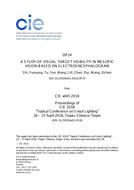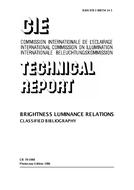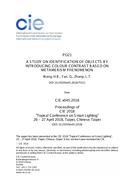This document was revised by the International Commission on Illumination (CIE) and is now published in cooperation with Technical Committee ISO/TC 274, Light and lighting.
This first edition of ISO/CIE 23539 cancels and replaces ISO 23539:2005/CIE S 010:2004, which has been technically revised.
The main changes are as follows:
— The scope of the document has changed to incorporate the spectral luminous efficiency functions published by the CIE for a) mesopic vision and b) 10° photopic vision, on the basis of CIE 018:2019.
— The International System of Units (SI) and its reformulation of the definition of the candela – effective on 20 May 2019 – has been incorporated (Resolution 1, 26th CGPM, 2018).
— A list of normative references has been added.
— Specific requirements have been added regarding the use of units, tabulated values and interpolation of intermediate values.
— The background of the CIE system of physical photometry, specifically the evolution of the photometric base unit, has been updated in Annex C.
— The CIE 2015 cone-fundamental-based spectral luminous efficiency functions for a) 2° field size and b) 10° field size have been added in Annex E based on CIE 170-2:2015.
The purpose of photometry is to measure light as perceived by human eyes. The brightness of a luminous surface depends not only on the amount of radiation it emits, transmits or reflects, but also on its spectral composition and on the visual response function of the observer viewing it. Because human visual response varies at different light levels and from person to person, precise photometry requires the definition of representative standard observers. The CIE system of physical photometry specifies procedures for the quantitative evaluation of optical radiation in terms of internationally agreed spectral luminous efficiency functions for human vision. V(λ) represents photopic vision, V'(λ) represents scotopic vision and Vmes;m(λ) represents mesopic vision, the latter being intermediate between photopic and scotopic vision. Furthermore, V10(λ) represents 10° photopic vision. These luminous efficiency functions adopted from CIE 018:2019 and BIPM-2019/05, together with the SI base unit, the candela, constitute a system that enables the calculation of values of photometric quantities for optical radiation as well as light-emitting, light-transmitting or light-reflecting surfaces, to be precisely determined based on the International System of Units (SI), regardless of the spectral composition of the radiation emitted, transmitted or reflected.
The CIE system of physical photometry has some limitations in respect to the brightness of coloured surfaces: two light sources of different colour but with the same measured luminance value will not necessarily be perceived as equally bright. CIE has therefore published a more complex model (CIE 200:2011) for specific situations. For eye-mediated non-image-forming
effects of light induced partially or completely by the intrinsically photosensitive retinal ganglion
cells (ipRGCs), CIE S 026/E:2018 is used.
Product Details
- Published:
- 2023
- Number of Pages:
- 52
- File Size:
- 1 file , 2.1 MB
- Note:
- This product is unavailable in Ukraine, Russia, Belarus


